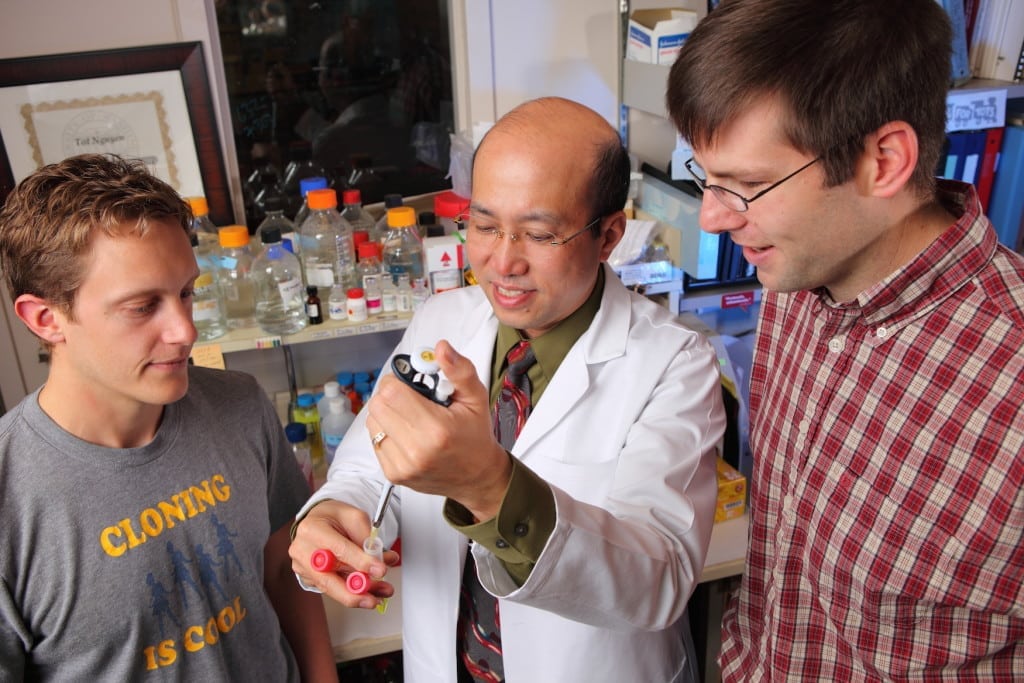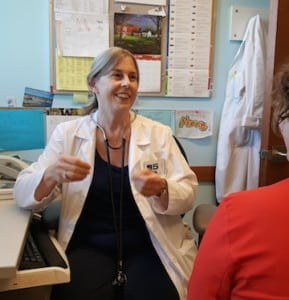New regimen would make it easier for patients and potentially clear residual virus

An interdisciplinary team led by Professors Rodney JY Ho of the UW School of Pharmacy and Ann Collier of the UW School of Medicine received $14M from the National Institutes of Health (NIH) to develop a long-lasting (7-day) therapy for HIV. The two co-Principal Investigators and the team will develop innovative treatments to overcome limitations of current oral drug therapies. The UM1 NIH grant is one of first that the NIH recently awarded as part of its key initiatives to address unmet medical need in HIV/AIDS. Dr. Ho was a recipient of the Milo Gibaldi Endowed Professorship, which funded part of the research in developing this program.
The HIV virus is a formidable opponent for researchers. It constantly mutates, making it harder to create drugs for prevention and treatment. HIV lives not only in the blood stream, but in tissues, making it hard to eradicate from the body. It is possible to greatly reduce the presence of the virus in the blood, but finding a way to reduce its presence in tissues has been significantly more challenging.
While current drug combination therapies have significantly improved the length and quality of patient life, they present two main challenges: 1) they must be taken one or more times a day lifelong; and 2) they are not as effective at removing residual viruses from tissues.
Taking treatment as prescribed, known as medication adherence, can be a challenge for many patients. A 2004 study showed that while over 80 percent of HIV patients take their medications as prescribed, two-thirds of older patients who missed a dose said they ‘simply forgot.’ As former surgeon general C. Everett Koop famously said, “Drugs don’t work in patients who don’t take them.”

With the global, U.S. and Washington state goals to eliminate HIV transmission and end the HIV/AIDS epidemic, achieving treatment success for all infected persons is an important component. If adherence is poor, HIV can develop resistance to antiretroviral drugs, which in turn means that higher drug levels or different drugs are needed. Insufficient drug levels may also occur in some tissues. These issues may lead to treatment failure with subsequent progression of HIV to AIDS.
The UW’s new Targeted Long-Acting Combination Antiretroviral Therapy (TLC-ART) Program is an innovative, translational medicine research designed to leverage existing knowledge and a world-class interdisciplinary team of academic, NIH, and industry researchers to deliver new, safe, stable, scalable, and tolerable antiretroviral combination treatments for HIV infection.
Based on the discovery at UW that some antiretroviral medications taken by mouth do not provide sufficient drug exposure and are linked to residual HIV replication, a team led by Drs. Ho and Collier developed the TLC-ART Program that has now received support from the NIH.
The Program has multiple projects designed to interact in a coordinated and collaborative way with the focused goal of producing injectable drug combinations that will achieve effective drug levels lasting more than seven days. In addition to laboratory-based research, the Program incorporates innovative behavioral science studies that will gather information from potential users of long-acting antiretroviral treatments.
Long-acting antiretroviral treatment would provide a new option to help improve patient adherence, especially for those with adherence challenges. With the ability to direct drugs to lymphoid tissue and potentially overcome drug insufficiency in tissues, this research may also help eliminate residual virus.
“We started out very early on in the battle against HIV/AIDS to find a treatment or a vaccine, but it continued to elude us. It is more than likely that a systems approach using innovative drug targeting to cell and tissue along with boosting of patients’ immune system may lead to a cure,” said Dr. Ho. “We cannot do this work alone and I look forward to collaborating with our partners and especially Dr. Collier, who has over 25 years of clinical trials experience.”
“Collaboration among researchers with many different types of expertise and with the affected community has led to major advances in treatment for HIV and I am optimistic that the TLC-ART Program will continue to advance treatment options,” said Dr. Collier.
The TLC-ART Program has investigators from the UW Schools of Pharmacy and Medicine, Fred Hutch, Seattle Children’s Research Institute, the Washington National Primate Research Center, as well as Harborview Medical Center, and will leverage resources of the UW/Fred Hutch Center for AIDS Research and the UW Institute of Translational Health Sciences.